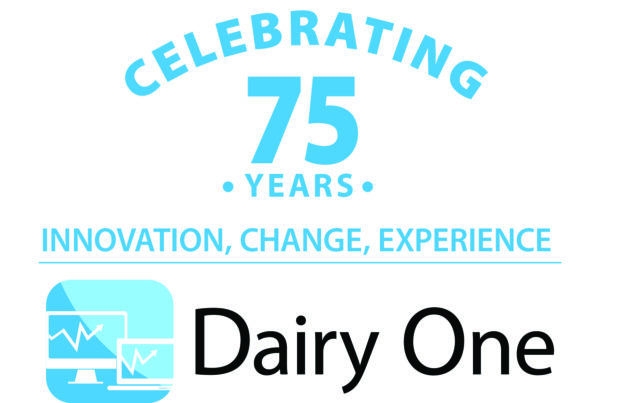I like the way ancient Israel feasted – they celebrated seven events, feasting with purpose. And it wasn’t really about the food.
-
Passover: This feast was a reminder that during the 10th plague of Egypt the first-born sons of the Egyptians died while the Angel of Death passed over the Hebrew homes with the “blood of the lamb” on their door posts. Essentially, it represented salvation.
-
Feast of Unleavened Bread: Leaven, or yeast, in the Bible symbolized sin and evil. Unleavened bread symbolized a holy walk, as with the Lord. Christ was described as the Bread of Life, and was born in Bethlehem or “house of bread.”
-
First Fruits: This feast acknowledged the fertility of the land God gave the Israelites. The modern church calls this feast Easter, and the rabbit and egg are still used as reminders of fertility.
-
Pentecost: This feast occurred on the 50th day after Passover, typifying the “marriage day” or covenant between God and Israel, between heaven and earth.
-
Trumpets: The trumpet traditionally proclaimed liberty (think of Joshua conquering Jericho).
-
Atonement: This feast marked a day of confession – the highest of holy days, the only time the High Priest could enter the Holy of Holies in the temple where he made intercession on behalf of Israel.
- Feast of Tabernacles: This feast was used to remember the huts the Israelites lived in during the 40-year sojourn in the desert after the exodus from Egypt. Later, after the Israelites entered the land of promise, the feast became associated with the fall harvest and was known as the “festival of ingathering.”
The heritage of these seven feasts, as I see it, was not just to fill bellies with really good food but to instill purpose in the lives of the people.
There’s a reason I brought this up, so I’ll just say it – while Thanksgiving is a feast, it shouldn’t be about the food. Taste is not a purpose. The number of salad choices or pies is not a purpose.
Making sure the stuffing has sausage in it or was made just like your mother’s is not a purpose. Gratitude for Pilgrim heritage, however, is a purpose. Food (typifying the Pilgrims’ overarching struggle) is the expression, but gratitude is the purpose.
The Pilgrims left a heritage. Our ancestors left a heritage. Good or bad, I suppose everyone leaves a heritage. I’ve given a lot of thought to heritage lately, whether it’s farming heritage, ranching heritage, work heritage or some other personal heritage.
I’ve decided what I want my heritage to be: living with purpose. With every passing season, I realize more keenly how important it is to live with purpose and focus, and not just be blown about with the winds of life.
I need to parent with more purpose, grandparent with more purpose – work, give, learn, serve and worship with more purpose. And, yes, that includes feasting with more purpose (but not necessarily with more food).
My challenge will be not to confuse the purpose (parenting, working, giving, serving, gratitude) with the tools of its expression – like feasting, farming or ranching.
What will your heritage be? FG

- Lynn Jaynes
- Editor
- Progressive Forage Grower
I like the way ancient Israel feasted – they celebrated seven events, feasting with purpose. And it wasn’t really about the food.
-
Passover: This feast was a reminder that during the 10th plague of Egypt the first-born sons of the Egyptians died while the Angel of Death passed over the Hebrew homes with the “blood of the lamb” on their door posts. Essentially, it represented salvation.
-
Feast of Unleavened Bread: Leaven, or yeast, in the Bible symbolized sin and evil. Unleavened bread symbolized a holy walk, as with the Lord. Christ was described as the Bread of Life, and was born in Bethlehem or “house of bread.”
-
First Fruits: This feast acknowledged the fertility of the land God gave the Israelites. The modern church calls this feast Easter, and the rabbit and egg are still used as reminders of fertility.
-
Pentecost: This feast occurred on the 50th day after Passover, typifying the “marriage day” or covenant between God and Israel, between heaven and earth.
-
Trumpets: The trumpet traditionally proclaimed liberty (think of Joshua conquering Jericho).
-
Atonement: This feast marked a day of confession – the highest of holy days, the only time the High Priest could enter the Holy of Holies in the temple where he made intercession on behalf of Israel.
- Feast of Tabernacles: This feast was used to remember the huts the Israelites lived in during the 40-year sojourn in the desert after the exodus from Egypt. Later, after the Israelites entered the land of promise, the feast became associated with the fall harvest and was known as the “festival of ingathering.”
The heritage of these seven feasts, as I see it, was not just to fill bellies with really good food but to instill purpose in the lives of the people.
There’s a reason I brought this up, so I’ll just say it – while Thanksgiving is a feast, it shouldn’t be about the food. Taste is not a purpose. The number of salad choices or pies is not a purpose.
Making sure the stuffing has sausage in it or was made just like your mother’s is not a purpose. Gratitude for Pilgrim heritage, however, is a purpose. Food (typifying the Pilgrims’ overarching struggle) is the expression, but gratitude is the purpose.
The Pilgrims left a heritage. Our ancestors left a heritage. Good or bad, I suppose everyone leaves a heritage. I’ve given a lot of thought to heritage lately, whether it’s farming heritage, ranching heritage, work heritage or some other personal heritage.
I’ve decided what I want my heritage to be: living with purpose. With every passing season, I realize more keenly how important it is to live with purpose and focus, and not just be blown about with the winds of life.
I need to parent with more purpose, grandparent with more purpose – work, give, learn, serve and worship with more purpose. And, yes, that includes feasting with more purpose (but not necessarily with more food).
My challenge will be not to confuse the purpose (parenting, working, giving, serving, gratitude) with the tools of its expression – like feasting, farming or ranching.
What will your heritage be? FG

- Lynn Jaynes
- Editor
- Progressive Forage Grower










